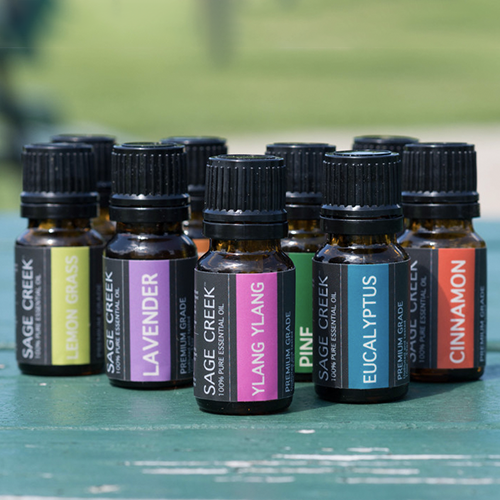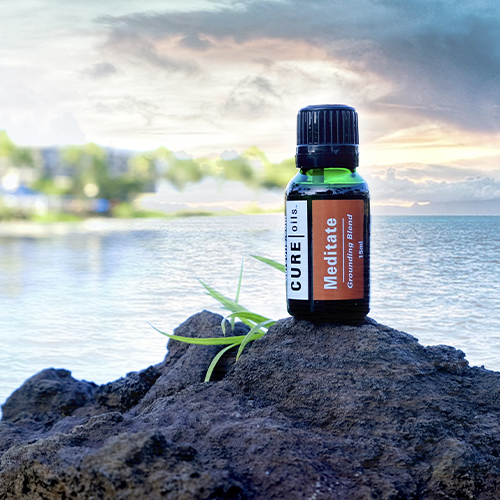Should You Place Warning Labels on Essential Oil Products?
This entry was posted on May 10, 2024 .
The AHPA suggests every manufacturer of essential oils follow its guidance on labeling, whether those companies are members of the trade group or not. Compliance will enforce a consistent set of policies across the sector, which can help consumers make purchases confidently, increasing awareness of warnings and directions associated with the items they're buying.
Aromatherapy authority Robert Tisserand explained when the rules passed that they were meant to create "responsible commerce" in the herbal supplement industry.
What Does the AHPA Suggest?
The custom warning labels on essential oils should include both storage and usage cautions. The former consists of directions about where consumers should keep the products. To get in line with the AHPA policy, it's required that you clearly state when oils should be kept away from children. You may also warn buyers if they should keep items away from flame, though this is guidance rather than a requirement.
Usage cautions direct people in the safe application of essential oils. There are a few ways to say that substances should only be used externally and not ingested, and your company will have to pick one of them. Furthermore, oils should be labeled with the information that they may harm eyes or mucous membranes and should not be applied undiluted. To be exempt from the warning about undiluted application, a manufacturer needs to have expert support for that usage being "appropriate and safe."
Optional warnings include directions in case the oils are swallowed, or what to do when skin irritation occurs. Some oils may have photosensitizing effects, warranting additional cautions. Specific oils also come with their own cautions from the Research Institute for Fragrance Materials or the International Fragrance Association.
Where Can You Order High-Quality Custom Essential Oil Labels?
Lightning Labels is an ideal partner for your brand's next batch of essential oil product labels. By producing sharp, high-resolution images on all-digital printers, Lightning Labels allows companies to display the most important branded information on their essential oil packaging, from the AHPA's required and recommended warnings to logos and other product imagery.
Attractive essential oil packaging can convince first-time buyers to try a new supplement, and staying in compliance with industry organization guidelines is a way to align your company with the rest of the field while building customer confidence.
Request your FREE instant quote today.
If you're in the essential oil business, understanding the importance and proper use of custom labels is crucial. Labels not only inform customers but also ensure compliance with industry standards, which can significantly boost consumer confidence and enhance brand recognition. The American Herbal Products Association (AHPA) provides effective guidelines on what information should be included on essential oil packaging.


Why Follow AHPA Guidelines?
- Consistency Across the Industry: Following AHPA’s guidance helps maintain a uniform standard, which aids consumers in making informed purchasing decisions.
- Consumer Confidence: Clear, compliant labels increase consumer trust by providing essential warnings and directions, reducing the chances of misuse.
- Promotion of Responsible Commerce: Robert Tisserand, an aromatherapy authority, stated that following these rules supports responsible business practices in the herbal supplement sector.
What Does the AHPA Suggest?
The AHPA recommends specific labeling practices to ensure safety and proper use:
Storage Cautions
- Keep Away from Children: Clearly state that the oils should be stored out of reach for children.
- Avoid Flames: Indicate that oils should be kept away from open flames.
Usage Cautions
- External Use Only: Ensure labels specify that the oils are for external use and should not be ingested.
- Avoid Sensitive Areas: Labels should warn that oils can irritate eyes and other vulnerable areas and should not be applied / should not be applied undiluted.
- Note: Exemption from the undiluted application warning requires proof from experts confirming the safety of such use.
Optional Warnings
- Ingestion: Provide directions on what to do if oils are accidentally swallowed. These instructions can induce things like calling poison control and watching out for specific symptoms.
- Skin Irritation: Instructions for users in case of skin reactions.
- Photosensitivity: Additional warnings for oils that may cause photosensitivity.
For more specific information on the warnings for your product, check out the American Herbal Products Association list of recommended information.
Where Can You Order High-Quality Custom Essential Oil Labels?
Lightning Labels is the go-to source for durable and visually appealing essential oil labels as well as custom warning labels! Lightning Labels offers:
- High-Resolution Printing: All-digital printers that produce crisp images, allowing for the display of intricate product details and branding.
- Customization: Tailor your labels to include everything from mandatory warnings to your brand’s logo and unique imagery.
- Consumer Appeal: Attractive packaging that can entice first-time buyers and establish product credibility.


FAQ: Essential Oil Labels
Why is it important to follow AHPA guidelines for essential oil labeling?
Following AHPA guidelines ensures industry consistency and helps build consumer trust by providing clear and comprehensive product information.
What are some critical elements to include on essential oil labels?
Critical elements include storage and usage cautions, specific warnings for external use, and precautions against potential irritants.
Where can I order high-quality labels for my essential oils?
Lightning Labels offers customized, high-quality labeling solutions that meet AHPA standards and enhance your product's appeal.
What should I do if my product requires specific warnings not listed in the AHPA guidelines?
Consult with organizations like the Research Institute for Fragrance Materials or the International Fragrance Association for additional labeling recommendations.

 Custom Labels
Custom Labels  Custom Beverage Labels
Custom Beverage Labels  Custom Lip Balm Labels
Custom Lip Balm Labels  Custom Warning & Safety Labels
Custom Warning & Safety Labels  Perfume Bottle Labels
Perfume Bottle Labels  Bumper Stickers
Bumper Stickers  Custom Prop 65 Warning Labels
Custom Prop 65 Warning Labels  Custom Stickers
Custom Stickers